Odi Yekun: Meaning, verse, sayings and advice of this sign of Ifa
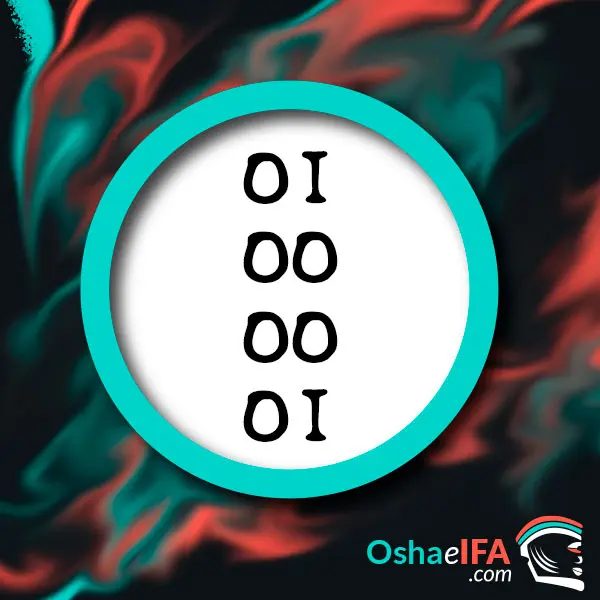
Odi Yekun, Ifá exhorts this person to offer the sacrifice of children and against earthly enemies. He will have many children, but he must be vigilant against his detractors. Regardless, whether he makes the sacrifice or not, his fortunes will be latent for him, but it is essential that he sacrifice against his adversaries.
Other names of the Odi Yekun:
- Odi Oyekun.
- I hate Ariku.
- Odi Yekutu Yekete.
In the odu Odi Yekun is born:
- Trade.
- The consecration of the first Omofá.
- Here: It was where the masks and masks were made to hold parties and ceremonies for OLOKUN and EGUN.
- Speak double-sided.
- Nothing is done to the sick person, because the Awó can die, and the sick person is saved.
Odi Yekun 7-2 speaks:
- Wealth is coming.
- This Odu has two very transcendental meanings because it speaks Iku and the grave.
The Odi Oyekun Sign points out:
- ORUNMILA curses respectfully but eloquently.
- It is where the disobedient relapses and ORUNMILA delivers him to death (Ikú).
It may interest you: Sign of Ifa Oyekun di
Recommendations of the sign Odi yekun (oyekun):
This Ifá predicts that you should not make fun of anyone and even less of drunkards, because you also like to drink.
This Ifá «Odi Yekun» predicts that your house is untidy.
You must comply with what you offer and do not forget the Babalawo or distance yourself from him, because you will express certain words that you will later regret having said.
Here you can not wish anyone bad or curse, because that brings backwardness.
Indicates that you will receive money that you have lost.
For this Odu, OBATALA is begged with 2 coconuts, cocoa butter, husk and 2 new white plates, apologizing for all the bad things he has done.
You have to be careful not to curse him.
This Ifá predicts to dress in white and to become a Saint.
It may interest you: All about Odi Meyi
Sayings of the sign Odi Yekun:
- Nobody dies when nobody wants, but when it is their turn.
- The dog has a bone in its mouth, it cannot howl.
- Anyone who finds beauty and does not look at it will soon be poor.
- Where the dog urinates, his brother also urinates.
- If all my children were equal, there would be no disgust in the World.
- He who renounces his family and friends and befriends strangers will die like a Jackal.
Oddi Yekun bans:
We must take care of diseases of the respiratory system and vascular system.
When the person all things are wrong, it is because you want to. Do EBO and then follow through on what you offer.
MAN: he dreamed that he did not have a wife, that later he got one and left. So you did EBO and found another one and when the one that left you knew it was okay, you wanted to return, but you didn't allow it.
WOMAN: She falls in love with a man who does not suit her, she should not accept it, because another is coming along the way who is the one that suits her. Don't despise it. This Odu has two very transcendental meanings, because they speak of death and burial.
In this Ifá ORUNMILA forgives and saves, because he says: If all my children were equal, I would not have disgust in the world.
This is where the disobedient relapses and ORUNMILA delivers him to death (Ikú).
In this Odu Odi Yeku, ORUNMILA curses respectfully but eloquently:
Go away bad spirit, you did not hear the advice, stay away bad shadow.
Ifa says in the odu Odi Yekun:
This was where the first OMOFA was consecrated, which received a hand of 16 Ikines, of the 32 representing orunmila at that time.
Here the person believes himself to be strong and powerful, because someone became afraid of him due to some circumstance and lives attached to that guapería, but when they know that he is actually a coward, they will destroy him.
Here the person, because of having some economic development, has separated from his family and when he falls from grace and comes to the family bosom in shame, they will take time to decide to help him, if they help him.
Odi Yekun predicts that he who renounces his family and friends and befriends strangers will die like the Jackal, despised by his own.
This Odu Odi Yekun prohibits drinking alcoholic beverages, so that those under command do not lose respect for him and do not stop considering him. If you do, you will lose your possession.
Here the person to save himself is capable of speaking lies and even meddling in matters that he does not know or that are not within his competence. Ifá says that you are taking care of other people's things and not taking care of yours. Take better care of yours so you don't lose it.
Prayer of the Odu Oddi Oyeku:
ODI YEKU DIYEKU OLORDOFUN BARABANIREGUN OUN
RUKU OLOYA UMBO OUN DEIESE AYARELO IDI
KULU EYE RUKU ADIFAFUN OYA ABAGUGU
MALABEJI.
Suyere of the oddun odi Oyeku:
TELE MISHE TELEMISHE MOFISHE ODI YEKU AÑA AMOJO OQUARA.
Ebo of the Odu Odi Oyekun Ifa:
To clean up the wrong you have done:
OBATALA will be begged with 2 coconuts, cocoa butter, husk, and 2 new white plates, apologizing for all the wrong he has done.
SHANGO or YEMAYA:
You will be given a white ram and the hide will be put on the door of the house. EBO will be done.
Meaning of the sign Odi Yekun
This is Odu # 63 of the lordial order of Ifá.
This Odu Odi Yekun speaks of financial success through the appeasement of your head (ORI). When you have bad luck, specify sacrifice to avoid death.
Communication with your ancestors is necessary to alleviate daily pressures or in business or work.
In Odi Yekun masks or masks were made to hold parties and ceremonies for OLOKUN and EGUN.
This Ifá speaks of people with two faces, as it is an Ifá with masks.
This Odu is used in Athens by OLOKUN and EGUN to feed them.
When this Odu is seen to a sick person, nothing is done to the sick person, because the Awo can die and the sick person is saved. Here the sick are cured.
It is an Ifá Fore Aye: Wealth comes and commerce is born.
In this Odu you have to attend a lot to Hey and he is given 2 red hens.
When this Odi Yekun in Iré, everything is unbeatable and a male child comes to him.
When Osobo comes: A deceased asks for mass.
When Osobo ini Ikú comes: He takes a fan and puts it fresh.
For this Odu, the very possible person is SHANGO's son and respect OYA.
Ifa code of ethics of the odu Odi Yekun:
To govern you have to have gray hair.
It may interest you: Ifa Odi She sign
Patakie of the sign Odi Oyekun:
THE MASKS.
When the trees came to the world, they went to see ORUNMILA to see how they could obtain the consideration of life, ORUNMILA, made them Osode and saw this Odu ODI YEKU and marked them EBO (the one indicated above).
None of the trees did the EBO. ORUNMILA explained to IKI AMOJO that later he had to make another EBO with the 2 roosters and a lot of money, to protect his body against witchcraft and the dangers of the enemies and that these roosters should be given to Eshu.
IKI AMOJO said that what he was looking for was consideration and since he had achieved it, he did not need to protect his body.
ORUNMILA had to go see OLOFIN, because he had called him since the earth was drying up, children were dying and women did not give birth. The trees were ignorant of this situation.
ORUNMILA made Osode to OLOFIN watching this Ifá, and it marked him to give 2 goats and 2 roosters to Eshu and that he beg for his head with 16 doves.
OLOFIN called OGUN, to ask for advice, because he wanted everything to be as cheap as possible, and he called Eshu. OGUN went to see IKI AMOJO and cut off his trunk, mouth, nose and ears.
He then prepared many masks and returned to OLOFIN, telling him that in 7 days he will answer the question.
That day they played the drums of Ifá, calling all the Babalawos and powerful men of the court of OLOFIN. When they were gathered, OLOFIN gave the masks given by OGUN to each one and said: This is AGUARA, it is the ADAMU-ORISHA spirit and you must dance to the rhythm of the drum, to consecrate the masks.
SUBJECT:
"Temishe Telemishe Odi Yeku Aña Amojo Oguara» "
And the masked men danced from morning to night.
At night ESHU went to see OGUN and told him that ORUNMILA had marked IKI AMOJO EBO and he did not. Then OGUN exclaimed: Worse for him, we will take all the masks and put them in the sacks that we will hang on the walls, to let the termite eat IKI AAMOJO's eyes and nose.
When this happens, the disease will devour your body and it will break into pieces and then new masks will be sculpted. As he made EBO for his honor, he will have the honor of being used to carve the masks.
But since he didn't make EBO for his body, these masks will be eaten by termites. And with that happiness returned on earth, as the masks reassured the EGUNs.
NOTE: This explains why the skins are renewed. This Odu is the one that is put on the masks to feed them.
Odi Oyeku Ifa Traditional
THE SEEDER FOR AN ANCIENT COMMUNITY:
When the citizens of an ancient town realized that they were losing inhabitants and fortune due to a resistant settlement, they went to Orúmila to guess them, and he advised them to make a sacrifice through the Oddun Odi Yekun so that the town to prosper once again Yeku Yeku naye ode titon.
He told her to make a goat sacrifice for Esu and feast the earth's divinity with a turtle, water gourd, and a wooden spoon of palm oil. They did not comply with the sacrifice.
Meanwhile the government authorities decided to build a new road to divert the movement of traffic and visitors away from the old new town. Also, some visitors who had been planning to set up an industrial business near the old town decided to move to the new town along the road.
In the end the residents of the old town packed their things to go to live in the new town by the road. This meant the total demise of the old town.
In divination the person will be told to make sacrifice to avoid the risk of being forced by circumstances to change his job or residence.
VERSE OF ÒDÍ ÒYÈKÚ
Ìdin sùkú sùkú
Awo Àgbon ló dífá fun Àgbon
Níjó tí Àgbon ń fojúú sògbérè omo
Wón ní ó rbo
Wón ní gbogbo omo rè ó níí yàtò Síra
Wón ni sùgbón adìe àgò lebo
Àgbon bá ru adìe àgò kan
Àgò òhún ní on fi ń kó àgbon lórùn
Tea dòní
Bí Àgbon bá ti ga ju èèyàn lo
Tí ón yes fé komo or dúró lára è
Kùňkú ni wón e kó or lórùn
Àgbon to lè kún kùňkù
Níń be nínúu siiri àgbon kan
hey hey
N ní wá ń jó ní wá ń yò
Ó ní béè làwon Babaláwo tòún wí
Ìdin sùkú sùkú
Awo Àgbon ló dífá fun Àgbon
Níjó tí Àgbon ń fojúú sògbérè omo
Wón ní ó saca káalè ó jàre ebo ní ó se
Àgbon gbébo ńbè
Ó rubo
Taa ló bímo báwònyí kandi kandi?
Àgbon nikàn ló bímo báwònyí kandi kandi
Àgbon nikán
Èyin ló pé omo Àgbon pò láyé.
Ifá says in Odi Yekun: that this person must offer the sacrifice of children. A basket full of chickens is the sacrifice. The birds must be equal in numbers both roosters and hens. Ifá predicts the good fortune of children to this person.
Ìdin sùkú sùkú
The fortune teller of the Coco, guessed for the Coco,
The day I cried for the lack of children
They told him to sacrifice
They told him that all his children would look like each other
But a basket full of chickens is the sacrifice
The Coco offered the sacrifice
That same basket is the one that hangs on your trunk
Nowadays
Immediately, the coconut tree grew above the height of the human being
And the men wished their fruits to feel good
The cage or basket would be hung on its trunk
The Coco was able to fill the basket
It is where you can find a lot of coconuts
Life pleased her
He began to dance and rejoice
He said his Babaláwos had told the truth
Ìdin sùkú sùkú
The fortune teller of the Coco, guessed for the Coco,
The day I cried for the lack of children
They told him to take care of the land and sacrifice
The Coco offered the sacrifice.
Who has such strong children?
It is the Coco who has such strong children
Only the coconut
Can you see how numerous the children of the Coco are?
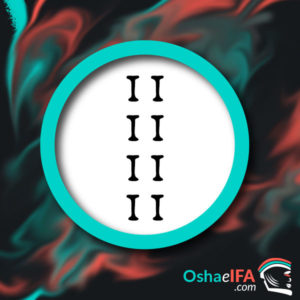
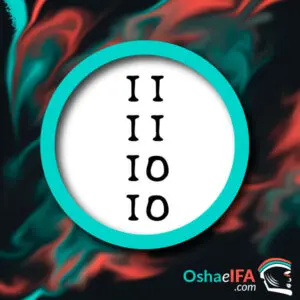


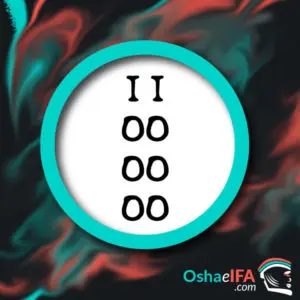

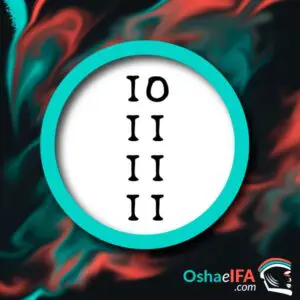
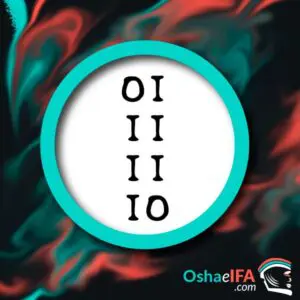
Everything that appears here is happening to me and I am only 17 years old, I have no words for this.
GOOD I REALLY APPRICIATE PLEASE FOOD DOES THE PERSON OR CLOTH OR THE THING THE PERSON MOST NOT BE DOING PLEASE I NEED ANSWER